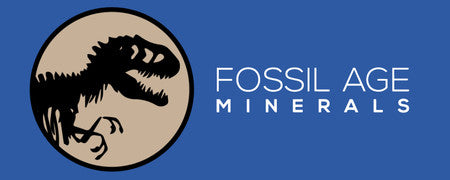1.3" Crocodile Fossil Toe Bone Hell Creek FM Cretaceous Dinosaur Age Montana
Location: Hell Creek Formation, Montana (Private Land Origin)
Weight: 0.6 Ounces
Dimensions: 1.3 Inches Long, 1.2 Inches Wide, 0.8 Inches Thick
The item pictured is the one you will receive.
Cretaceous Age through to the Eocene Age
Crocodiles are reptiles belonging to the order Crocodylia. They have been around for millions of years and have evolved into various species over time. During the Cretaceous Age, several crocodile species inhabited the Hell Creek Formation.
During the Cretaceous Age, which lasted from approximately 145 to 66 million years ago, the Hell Creek Formation in the United States was home to a diverse range of species, including crocodiles. The Hell Creek Formation is located in parts of Montana, North Dakota, South Dakota, and Wyoming, and it represents a terrestrial environment that existed during the Late Cretaceous period.
One of the most well-known crocodile species from this time and location is Deinosuchus. Deinosuchus was a giant crocodile that lived during the Late Cretaceous period. It was one of the largest crocodile-like reptiles ever to have existed, with some individuals reaching lengths of up to 40 feet (12 meters). Deinosuchus had a robust body, a long snout filled with sharp teeth, and powerful limbs adapted for swimming and walking on land. It likely occupied a top position in the food chain and preyed upon dinosaurs and other large animals.
Another crocodile species found in the Hell Creek Formation is Borealosuchus. Borealosuchus was a medium-sized crocodile that lived during the Late Cretaceous period. It had a more slender body compared to Deinosuchus and reached lengths of around 10-15 feet (3-4.5 meters). Borealosuchus had a long snout with numerous sharp teeth, which suggests it primarily fed on fish and small vertebrates.
The third crocodile species found in the Hell Creek Formation is Leidyosuchus. Leidyosuchus was a smaller crocodile that lived during the Late Cretaceous period. It had a length of about 6-8 feet (1.8-2.4 meters) and possessed a broad, rounded snout with blunt teeth. This morphology indicates that Leidyosuchus likely had a diet consisting of mollusks, crustaceans, and other small aquatic organisms.


















